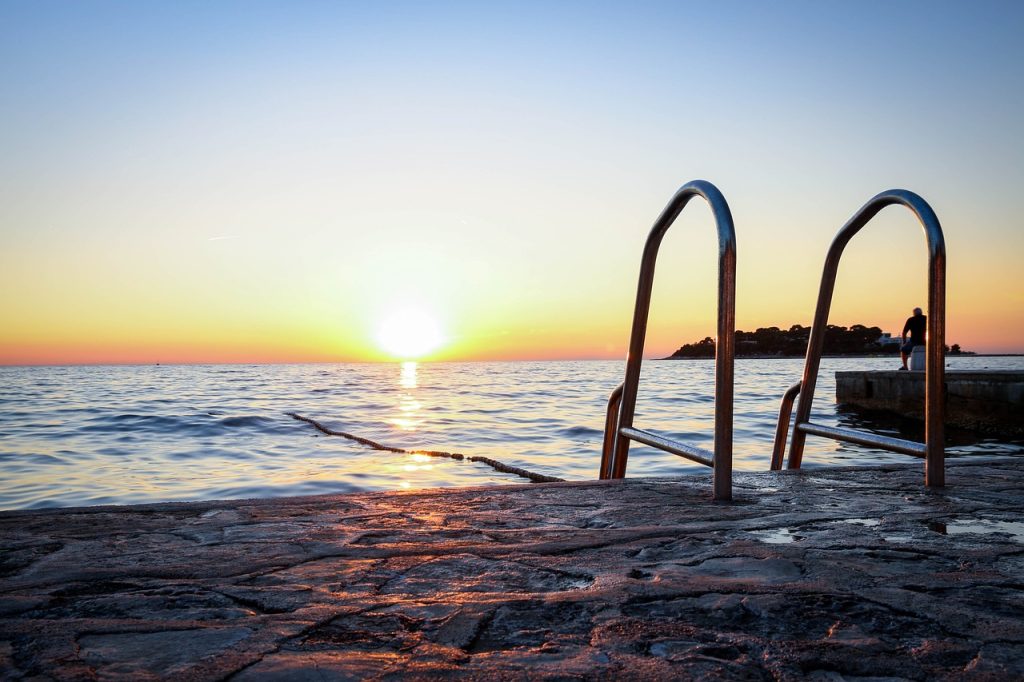June the 14th, 2023 – What will summer 2023 look like for us Croatian residents? More and more people are actively planning their summer breaks than before.
As Poslovni Dnevnik/Marija Crnjak writes, this year, more Croatian residents are planning their summer holidays than in the previous few years. Naturally, most are still mostly planning to holiday on the Adriatic coast in private accommodation or with friends and relatives, and the novelty is that the number of Croatian residents travelling outside the country and to distant destinations is increasing.
A survey revealed travel plans for 2023
The aforementioned information was showcased by the MasterIndex survey conducted for Mastercard back in April this year by the Improve agency on a sample of 1,022 users of banking services between the ages of 18 and 55.
Holidaying at home on the coast remains the most popular choice
40% of the respondents plan to go on a summer holiday somewhere else within Croatia this year, while 32% are still considering this possibility. Private accommodation remains the most popular choice, and when choosing a destination, the most important factors are a good price-quality ratio and the price of accommodation, with less crowded destinations being preferred. The biggest concern related to travel is the rise in prices, or inflation.
What about outside of the summer season?
When it comes to travel plans this year in general, not only related to summer vacations, as many as 90% of the Croatian residents who responded are planning a trip. Most often, these trips will also be somewhere within Croatia (77%), while one in four plans to visit neighbouring countries or those elsewhere but still within Europe. At the same time, the popularity of trips within the country fell by 6 percentage points, and more and more people are deciding to visit countries in Croatia’s more immediate region and even beyond the European continent. As such, 7% of respondents are planning a trip to another continent.
An increase since 2021
This figure of 72% of Croatian residents who are planning a summer holiday on the coast at home is at the level of last year, but represents a significant increase compared to previous years. In pandemic-dominated 2020, only 54% of respondents bothered to plan a summer holiday at all, while in 2021 this number increased to 68. The public health crisis of the time was of course an enormous obstacle for many things, particularly in 2020.
Inflation is having an effect
Among those who don’t plan to go to the coast this summer, 31% are those Croatian residents who already live by the sea. Other significant reasons for not going on holiday this summer are lack of financial resources (21%) and financial insecurity (18%). It’s interesting to note that, when compared to last year, when 43% of respondents cited financial insecurity as a reason, this year that figure decreased to 18%, while financial impossibility increased from 3% in 2022 to a much higher 21%.
There are 12% of those who don’t like going to the coast (18% of men versus 6% of women), while 4% of respondents are planning a summer holiday outside of Croatia, citing cheaper prices as the main reason.
private accommodation trumps hotels, again
Private accommodation remains the most popular option for summer holidays in 2023, with 52% of Croatian residents opting for this type of accommodation. Almost a third of respondents spend their holidays in their own property or with relatives/friends (32%), 17% of respondents stay in hotels, while 6% choose camping.
A toss up between crowds, cost and quality
When choosing a destination, more than 60% of the Croatian residents surveyed believe that the most important thing is a good ratio between the price and the quality of their chosen accommodation. In addition, 42% of respondents emphasised the importance of smaller crowds and smaller places, while 39% emphasised climatic conditions, and 36% a good transport connection. Compared to the year before, gastronomic (30%) and some sort of cultural offer (26%) are losing importance.
As has been the case back during previous years, the majority of respondents (61%) plan to book accommodation through specialised websites for booking accommodation or travel agencies. 53% of respondents pay for accommodation with bank or credit cards, and 41% with cash. The popularity of cash for this purpose is falling – for example, in 2019 it was at the level of 56%.
More has changed in terms of payments in 15 years than in the 150 years before
“It’s interesting that the way we pay for things has changed more in the last 15 years than in the 150 years before. Each of these changes has reduced the share of cash payments, and contactless and digital payments are becoming a habit. In addition, financial value is no longer only expressed in money, but also in data, cryptocurrencies and digital goods, so it’s only a matter of time before they become a standardised form of payment. In a business context, adaptation and recognition of these trends will surely bring business entities in the tourism segment who do it on time a great advantage in the future,” said Gea Kariz, the director of Mastercard in Croatia.
Price hikes remain a valid concern
Currently, the biggest travel concern for respondents is rising prices, which concerns 56% of them in total. Compared to last year, when the geopolitical situation in Europe following the Russian invasion of Ukraine was mentioned more often among worries, this year only 6% of respondents mentioned it, while coronavirus is no longer a source of concern when organising a trip at all. Compared to last year’s 61%, this year 31% of respondents state that they are not worried about anything related to travel.









